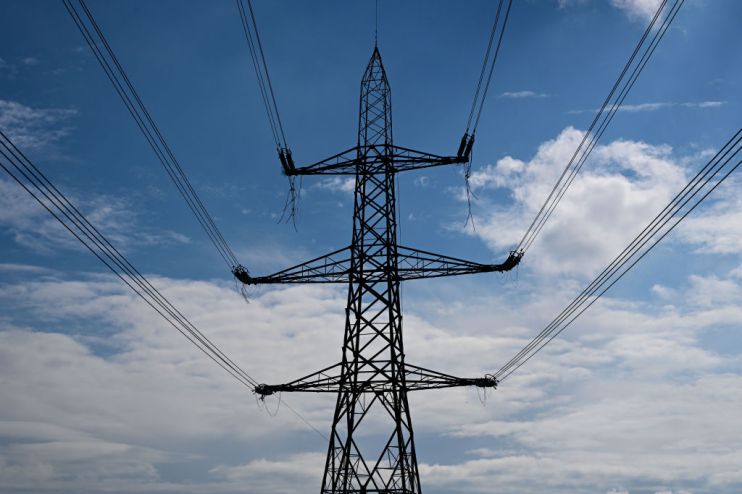National Grid needs competition for UK to meet energy ambitions, argues energy boss

National Grid’s electricity network should be opened up to competition from private companies to speed up connections for new projects, argued the boss of a leading clean energy firm.
Andy Willis, chief executive of Kona Energy, told City A.M. renewable companies looking to connect their projects to the grid should not be “at the mercy of their procurement times” and “how much engineering resources those companies have.”
He said: “If we could open up competition in those networks to allow private companies to build some of that infrastructure – it should lead to greater efficiency and acceleration of a lot of these projects.”
National Grid operates as a monopoly for transmissions, with energy companies having to wait for the company to connect them to the UK’s grid with transmission cables.
It oversees the entry queue for thousands of starter projects every year, but its system has been slammed as obsolete – with the Transmissions Entry Capacity queue operating on a first-come first-serve basis, regardless of the viability of any project.
The centralised body set up a temporary amnesty last year, providing companies the ability for people to exit the queue if they feel the development is no longer viable, without also having to suffer financial penalties.
Critics however, have called for more action, including the possibility of private companies rivalling National Grid for business.
Willis argued there was precedent for third parties on the grid, citing the Offshore Electricity Transmission (OFTO) process, where Ofgem oversees the competitive tender process for the licensing and selling of offshore transmission assets.

This includes cables that go out to wind farms and the onshore substations which then connects the main national grid and the rest of the network.
“OFTO’s proven to be very cost effective and a much quicker way of getting those offshore wind farms built as well. I know Ofgem are looking at introducing new reform to networks. As National Grid have monopolies on it, they’re quite resistant, but I personally think this would be another good avenue to accelerate connections on the network,” he said.
Zoisa North-Bond, chief executive of Octopus Energy Generation told City A.M. that National Grid was hampering the industry’s ambitions to end the energy crisis and slash the country’s dependence on expensive fossil fuel imports.
She said: “The slow pace of grid connections is holding us back. The UK now has one of the largest grid connection queues in Europe – solar and wind projects often have to wait 10 years or more to get connected. That’s simply not good enough.
“We’re seeing significant investment appetite towards building more renewables in Britain – but we need to be able to unleash it quicker by connecting more cheap green projects.”
North Bond previously told City A.M. that National Grid installation times was a bigger issue than planning for onshore wind – which has fallen into a de-facto moratorium.
National Grid reform key for renewable hopes
The latest concerns over slow connection times for new projects follows offshore wind champion Tim Pick warning that the UK was set to miss its offshore wind generation target of 50GW by the end of the decade, a key part of the country’s energy security strategy.
In his report into the sector, published by the department for net zero and energy security, he said: “If you take just one message from this report, it should be the urgent need to upgrade our national grid for a world of high renewables penetration, and widespread electrification of homes and businesses. Grid connections are increasingly becoming the rate-limiting factor for our offshore wind deployment going forward”.
Octopus Energy’s chief executive Greg Jackson argued last year that National Grid is “not fit for purpose” and was the biggest challenge to building more renewable energy sources.
Questioning its monopoly status at the Times Earth Business Summit last October, he called on the UK to follow the example of other countries such as India and Brazil with “contestable grids” where connections can be fielded by competing contractors.
| Energy source | Current generation | Target | Target Date |
| Solar | 14GW | 70GW | 2035 |
| Offshore wind | 13GW | 50GW | 2030 |
| Nuclear | 7GW | 24GW | 2050 |
| Hydrogen | <1GW | 10GW | 2030 |
National Grid’s electricity system operator unveiled a five-point plan in March to expedite grid connections for electricity transmission-related projects.
This included updating modelling assumptions about which projects in the queue were feasible and fast-tracking battery storage projects.
Speeding up projects is essential, with National Grid chief executive John Pettigrew previously warning it will have to deploy seven times the amount of transmission cables in the current decades as it has done for the last 30 years of its operational existence.
National Grid has pledged £40bn investment in critical projects, including £29bn targeted towards decarbonising energy networks across the country.
When approached for comment, a National Grid spokesperson said: “We’re committed to connecting projects to the grid as fast as possible. A majority of projects in the pipeline have connection dates within 12 months of their requested date, and we’re working with the electricity system operator, Ofgem and wider industry to introduce new ways to speed up the process for others.
“As well as refining the connections pipeline, we’re collaborating with industry to push for policy and regulatory reform to allow us to make earlier decisions on longer term planning and network investment, supporting faster progress towards a clean and affordable energy system.”